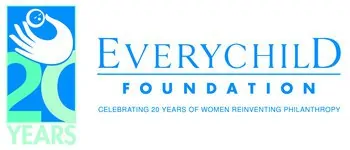
Critical Choices for Helping Low-Income Children in L.A. / Dr. Jonathan Fielding (June 2004)
On the evening of June 3, 2004, Everychild members, spouses and guests met at the Brentwood home of Liz and Greg Craig to explore critical issues affecting the lives of many low-income children in Los Angeles today. Speaking with the group was Dr. Jonathan Fielding, who as Director of Public Health for Los Angeles County, is responsible for all public health functions including disease prevention, health protection and health promotion for the county’s over 10 million residents. As former Chairman of the California Endowment and a current member of the city’s First 5 LA Commission (responsible for allocating tobacco tax dollars to improve health, development and school readiness of children aged 0-5 in Los Angeles), Dr. Fielding had valuable expertise to share with Everychild members regarding both key opportunities for improving the lives of local children and critical factors to consider in making funding choices.
Dr. Fielding illuminated several critical areas for impact on the lives of children in Los Angeles:
Literacy: 50% of the parents of children in Los Angeles don’t speak English at home – and maternal literacy is the single biggest determinant of a child’s literary success.
Childcare: With nearly 70% of women in the workforce, the need for affordable childcare is critical, particularly for low-income families. While the First 5 LA Commission has committed $600 million to developing a universal preschool system, Dr. Fielding stated that this is only 20% of the funding that’s needed.
Diabetes and Obesity: Obesity is the fastest growing epidemic in Los Angeles County, and concurrently, Type 2 diabetes has increased tenfold in adolescents. Current evidence shows that educating children and their parents doesn’t make a big difference. What’s needed are changes in the environment that promote a healthier lifestyle, such as exercise programs at school, less junk food in vending machines, financial incentives to produce more healthful foods, and places to live and work that promote walking rather than driving, climbing stairs rather than taking elevators and escalators.
In identifying projects to fund, Dr. Fielding suggested that Everychild members ask ourselves, “What are we outraged about?” and then look for key leverage points to address the problems we identify. Do we want to continue to focus on specific groups of children by funding direct services and local capital projects? Do we want to get even more specific, selecting a smaller community of children within Los Angeles and funding a series of projects within that community, or focusing on a specific need over a period of years? Or conversely, do we want to consider affecting broad policy changes by funding advocacy for issues such as nutritional labeling, increasing the age for purchasing cigarettes from 18 to 21, or raising the tax on alcohol? Commenting that “giving away money well is one of the hardest things in the world,” Dr. Fielding offered valuable insights and thought-provoking questions for Everychild members to take away from our evening together.

